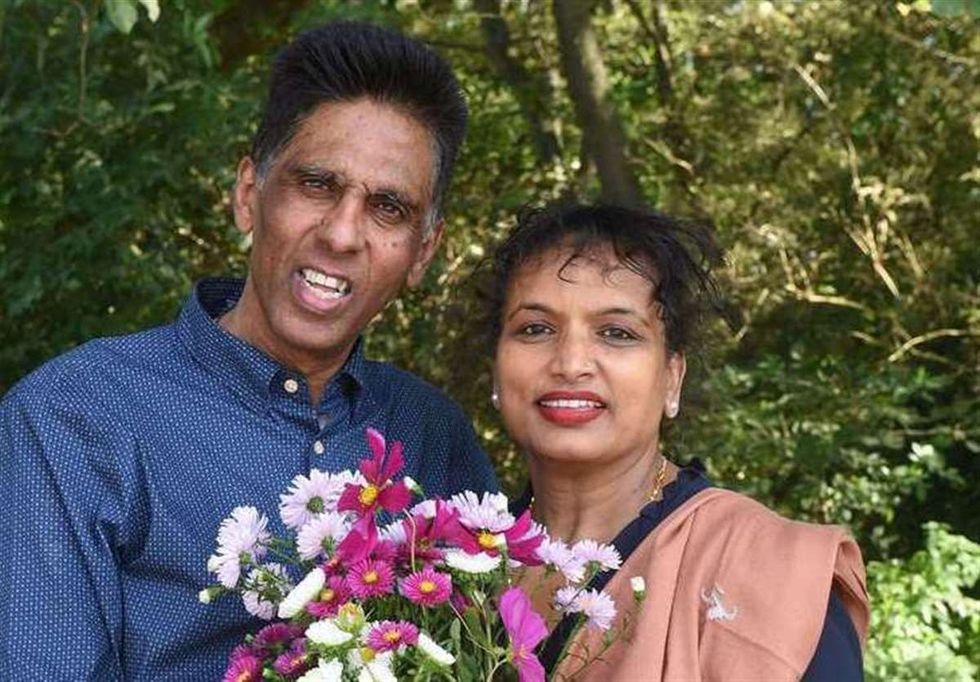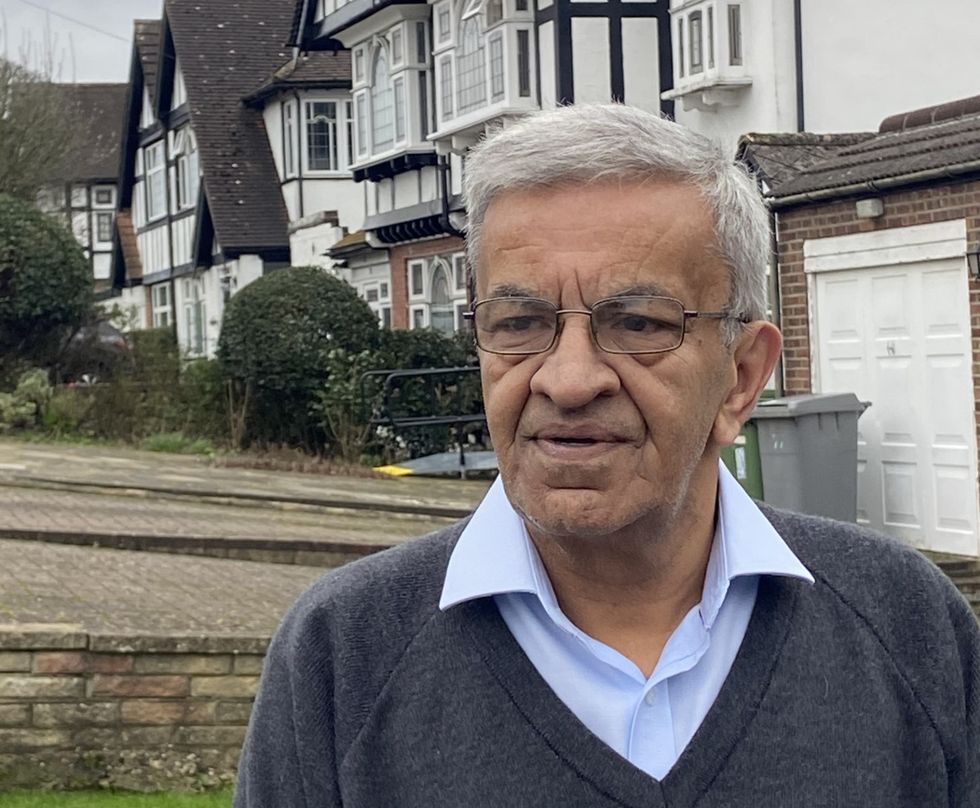ASIAN sub postmasters have described the devastating impact of the Post Office Horizon scandal as they revealed the consequences of the injustice on their families as well as their health and finances.
In interviews with Eastern Eye, some post masters recalled the fallout of discriminatory and racist behaviour by Post Office bosses.
They revealed how they were ostracised by their local communities after they were wrongly accused of theft, prosecuted and jailed.
Shazia Saddiq, who was called a thief and was assaulted in the street in front of her children, told Eastern Eye, “I lost my pension, my health insurance, my life insurance; I lost my home, my sanity, my reputation.
“How can one put a price on the loss of dignity and reputation?”
Seema Misra was jailed when she was pregnant.
She gave birth to her second child wearing an ankle tag and has been diagnosed with post-traumatic stress disorder.
No amount of money could compensate her family for the suffering they endured, to this day, she said.
Vipin Patel’s son said the family lost everything they has saved up to build a retirement nest.
When the scandal broke, local residents put a cross in the field next to their post office with a wreath bearing his father’s name.
Berkshire sub post master, Hasmukh Shingadia, had suicidal thoughts after being accused of stealing £16,000.
‘Ending it all’
Their comments come after the acclaimed ITV series Mr Bates vs The Post Office, which chronicles campaigner Alan Bates’s 15-year struggle to get justice for himself and other sub-postmasters and sub-postmistresses.

It tells the story of more than 700 sub-postmasters and sub-postmistresses who were handed criminal convictions after Fujitsu’s faulty Horizon software made it appear as though money was missing at their branches.
“I was watching it with my daughter Maya and we both had to come out of the room because we started crying,” an emotional Shingadia told Eastern Eye.
The ITV drama bought back traumatic memories for him, he said.
“At the time it happened, I was so angry and frustrated.
“My mental health started going down with all the pressure of thinking about what will happen to my wife and daughters if I go to prison.
“I thought two or three times about ending it all.”

Shingadia, 65, was handed an eight-month suspended sentence at Oxford Crown Court, ordered to pay more than £2,000 in costs and complete 200 hours community service.
After a 10-year legal battle, his conviction was overturned in July 2021.
Intimidation
Saddiq was wrongly accused of stealing £40,000 from the Post Office she ran on Westgate Hill on Newcastle-upon-Tyne.
She told Eastern Eye she received intimating calls from Post Office investigator Stephen Bradshaw who she claimed called her a b**** one time, which she found “extremely distressing”.

While Saddiq, 40, was ultimately never charged and prosecuted by the Post Office, she said her life was "destroyed" by the scandal.
"At the time my children were nine and four, and I was called the thief,” she said.
“I was assaulted in the street in front of my children and attacked with flour and eggs and even stoned.
“Because of this, I had to flee Ryton (in Tyne and Wear) overnight like a refugee.
“I went to my husband, who was living down south in Oxfordshire.
“I was already a divorcee with two children, I was sort of ostracised from the Asian community.
“I don't feel part of any community and I've been battling this on my own.”
Racial attacks
Misra told Eastern Eye that when she was jailed, some villagers in West Byfleet, where the couple lived, attacked her husband, Davinder, or Dave, as he is known.
Among those who were convicted, many were sentenced to prison, lost their businesses and their health deteriorated.
Vijay Parekh told Eastern Eye he lost his business, received an 18-month prison sentence, how he couldn’t get a job for six years and had a heart attack.
Parekh bought a three-floor building in Willesden, north London, in 2006, which included the post office.
He hoped it would be his retirement fund.

In the first three years of the business, he noticed minor shortfalls.
But in 2009, auditors declared there was shortfall of £70,000.
“It was a hectic time, it makes me so angry when I look back now,” Parekh said.
“We had to transfer our property to my daughter and son’s name, and they took out a loan to pay the £70,000.”
However, given the size of the shortfall, Parekh’s case was taken to the crown court where he initially pleaded not guilty, but was told that if he switched his plea to guilty, he would face a lesser charge.
Parekh attended a pre-sentencing probation service meeting, which recommended that he should not be given a custodial sentence.
The judge decided to ignore this and sentenced him to 18 months in prison.
He did three months at Wormwood Scrubs and a further three in Ford Open Prison.
“I wasn't allowed to go back to the Post Office.
“I bought the building on a 999-year lease and could have bought it freehold in 10 years.
“I was thinking of converting the upstairs into two flats – it would’ve been my pension pot.
“But I lost the building after just six months of going to prison because I couldn’t keep up with the mortgage payments,” said Parekh.
The 65-year-old’s conviction was quashed in 2021 and he received £100,000 in compensation, most of which went on paying legal fees.
“It’s taken 15 years of my life. It took me six years to find a proper job. It’s affected my health. I had a major heart attack because I was trying to fight this case and get my conviction overturned.”
‘Stolen’ heirlooms
Vipin Patel joined the post office in 1987, working at the Acton crown branch in west London, before opening his own post office in a small village, Horspath in Oxfordshire in 2002.
The shortfalls due to issues with the Horizon system started almost immediately.
“My dad had to cash in his Royal Mail pension to pay for these shortfalls.
“He also had to, unfortunately, ask my mom to sell her family heirlooms like gold, and wedding jewellery passed down for around three generations from India,” Vipin’s son Varchas Patel told Eastern Eye.
By 2010, Vipin had paid around £45,000 from his own pocket to cover the shortfall.
However, in December that year, auditors found a further shortfall of £34,000.
With no money left to cover this amount, Vipin was interrogated by Post Office investigators and suspended.
“When the court summons arrived, my dad called up a Post Office solicitor and was told that ‘if you plead guilty to one charge, we'll drop the other charge, and we will make your life easier’. So that's what my dad did,” said Varchas.
“He was later charged with fraud, or wrongfully charged with fraud, I should say, at Oxford magistrates, and ever since then, life has not been kind to my father – it shattered his physical health.
“He's disabled and walks on crutches.
“He was bedridden at one point, so numb he couldn't even move his arms and legs.
“He wasn't eating and drinking, he couldn't show his face in the community, he was made to feel like a pariah.”

Vipin, 70, was given an 18-week suspended prison sentence in 2011.
Varchas said the abuse his father endured from the community led to the rapid deterioration of his health.
“There was anarchy in our village. Intimidation, harassment, death threats, the use for racism,” Varchas said.
“Some people built a four-foot cross, and they concreted it into the village green outside our shop.
“They put a wreath on it which said, ‘rest in peace’, they literally wanted to put my father six feet under.
“I've got a picture of this.
“There were dead or alive posters circulated, with one stuck on our shop door.
“We were the first ethnic family in the village.
“The locals wanted to drive my father out.
“In fact, they were having parish council meetings.
“They had a meeting to block our business driveway and our private driveway to literally run my mum and dad out of the village.”
Racism
Varchas said he believes racism also “played a part” in the Post Office investigation into Asian sub-postmasters and sub-postmistresses.
He pointed to the ongoing public inquiry, where Amandeep Singh, who worked in the Post Office helpline call centre, revealed that staff “mistrusted every Asian postmaster” and made comments, such as “I have another Patel scamming again”.
Eastern Eye has spoken to several judges on and off the record about the Post Office Horizon scandal.
All, including a senior crown court judge, agreed that part of the inquiry must concentrate on whether race played any part in the Post Office’s decision to prosecute their employees or in the criminal justice process.
“The problem here is potential unconscious bias throughout the system – the prosecutors, the investigators, juries, experts, everything – you have to look at whether there was some unconscious bias operating here,” former Old Bailey judge, Nick Cooke KC, told Eastern Eye.

“What's actually affecting these people, whatever their ethnicity or social class, is that they've been wrongly convicted or left convicted by a system which should have prevented that.
“We need to find out whether unconscious bias affected the process in any way, and if it did, that clearly isn’t right.”
Cooke added that the judiciary should investigate the entire criminal justice process.
“There needs to be an independent investigation of the entire process, so we learn lessons from it,” said the retired judge.
“One problem is that a trial focuses on a specific case.
“There does not appear to have been anyone looking for a pattern of potential injustice, even though we have had such problems in the past.
“That should have been someone’s job and needs to be in the future.
“The fact that these prosecutions were flawed should have been picked up by the criminal justice system.
“The trial process should have picked up that there was something wrong here, before hundreds of people were wrongly convicted, either at appeal or at the first instance.
“It's really important, because if you don't want a repetition of this sort of thing, you need to discover what went wrong.
“One of the core functions of any criminal court system is to ensure that the innocent aren't wrongly convicted, and there was a terrible failure to do that.”
Miscarriage of justice
The High Court in 2019 ruled that computer errors - not criminality – were to blame for money going missing.
Prime minister Rishi Sunak announced last Wednesday (10) that the government will unilaterally quash the wrongful theft convictions of the Post Office branch managers targeted due to the faulty software and offer immediate compensation.

Announcing the highly unusual decision to pass legislation exonerating and compensating the sub-postmasters and sub-postmistresses, Sunak said he wanted to help right "one of the greatest miscarriages of justice in our nation's history".
Alongside the exonerations for those criminally convicted in England and Wales, the government will offer £600,000 per person in upfront compensation or the opportunity for claims to be individually assessed.
Meanwhile, those who are part of a group civil litigation over the issue will now qualify for a new upfront payment of £75,000.
The government said it has in recent years paid almost £150 million in compensation to more than 2,500 total victims embroiled in the scandal.
Sources in the judiciary told Eastern Eye the government did not need to bring in a blanket acquittal of all those involved in the so-called miscarriage of justice.
They said that courts could clear the backlog by using the same mechanisms when dealing with terminally ill people who felt they had been wrongly convicted.
“It’s something judges have been doing for years,” said one civil court judge who asked not to named.
“If someone’s case needed to be expedited, a judge would look at the evidence in writing, and as long as the defendant, in this case the Post Office and Horizon, didn’t object, we could agree a settlement and quash the conviction.
“I know of judges who were able to conclude more than a dozen of these cases every day.
“If we used our common sense, we’d be able to complete all the cases before the general election.”
Cooke agreed.
The former judge told Eastern Eye, “You could do that by setting up a system in which you've just got judges reviewing the papers and saying this case substantially depended on Horizon evidence, so that conviction is therefore unsafe.
“That could be declared on paper, and if a particular defendant, who was on the receiving end of an adverse decision, about that a judge saying I've read these papers, it didn't depend substantially on the Horizon evidence, was aggrieved by it, they can take the case for an oral hearing in the Court of Appeal.
“Incidentally, I see no reason why that it should be entirely High Court judges.
“In this case, if they say there's too much pressure on the work of high court judges, there's no reason why this paper process couldn't be done by circuit judges.”
Shingadia hit out at the government, saying they should have taken action over this scandal years ago when evidence came out that so many people were innocent.
“They should’ve jumped on this a long time ago.
“So many lives have been destroyed as a result of this.
“People lost their livelihoods, some committed suicide and others died without ever being exonerated,” he said.
(With additional reporting by Pooja Shrivastava)




